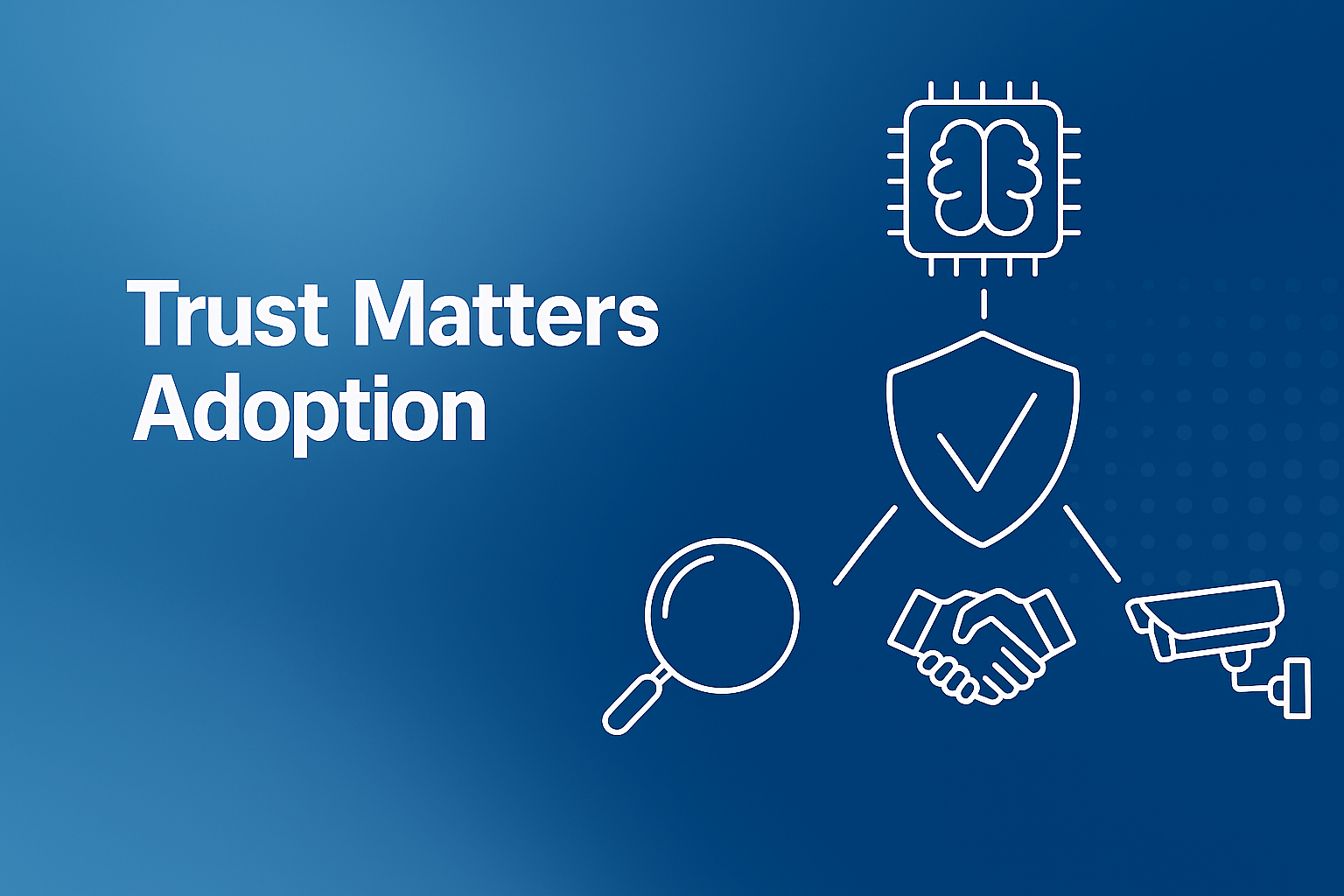Trust in AI Saudi Enterprises: Building Confidence in Intelligent Systems

Trust in AI Saudi Enterprises is becoming a defining factor in the success of digital transformation initiatives across the Kingdom. As Saudi Arabia accelerates its digital transformation in alignment with Vision 2030, the adoption of Artificial Intelligence (AI) is becoming a cornerstone for innovation, productivity, and national competitiveness. From finance and logistics to healthcare and education, AI technologies are being rapidly integrated into enterprise operations. Yet, one critical challenge stands in the way of widespread adoption: trust. Without trust in AI systems—both from decision-makers and end-users—implementation efforts may fall short, even with robust technology.
This article explores the key pillars of building trust in AI systems for Saudi enterprises, drawing on global best practices and local cultural, regulatory, and technological contexts, while highlighting the role of Semantic Brains in advancing ethical and reliable AI for Vision 2030.
Why Trust Matters in AI Adoption.

Trust is the foundation of successful AI integration. Enterprise leaders need to be confident that AI systems are accurate, ethical, secure, and explainable. For Saudi businesses, particularly those in highly regulated industries such as finance, oil & gas, and healthcare, trust is also tied to compliance with national laws and Islamic ethical standards. Lack of trust can result in user resistance, regulatory scrutiny, and reputational damage.
Establishing trust ensures that AI systems are adopted, embraced, maintained, and improved over time. It facilitates smoother integration into business operations and encourages innovation, fostering a digital-first culture that aligns with Vision 2030.
Pillar 1: Transparency and Explainability
AI models, especially those driven by deep learning, are often seen as “black boxes” with limited visibility into how decisions are made. To foster trust, enterprises must:
- Use interpretable AI models when feasible
- Provide clear documentation of model inputs, logic, and outcomes
- Implement explainability tools (e.g., SHAP, LIME) to visualize decision pathways
For example, explainable AI can help justify credit approvals or fraud detections in the financial sector, making the system more trustworthy to auditors and customers.
Semantic Brains prioritizes explainability by developing user dashboards that visualize how decisions are reached, providing clarity for business leaders and reducing the risks associated with automated misjudgments.
Pillar 2: Ethical AI and Cultural Alignment
Saudi enterprises operate within a unique socio-cultural and religious context. Building trust means ensuring AI systems align with Islamic values and societal norms. This requires:
- Avoiding biases in datasets that misrepresent local populations
- Designing AI for inclusivity (e.g., gender, language, regional diversity)
- Establishing an AI ethics board aligned with local principles
Semantic Brains incorporates local linguistic nuances and cultural parameters into its AI training datasets. This ensures outputs are relevant, respectful, and representative of Saudi society. Their ethical AI development framework is built around local data governance and aligns with SDAIA’s national AI strategy.
Pillar 3: Data Privacy and Security
AI systems depend on data, and concerns about how that data is collected, stored, and used are at the core of public skepticism. Saudi enterprises must adhere to:
- National cybersecurity standards (e.g., NCA’s Essential Cybersecurity Controls)
- Data localization laws under Saudi Arabia’s Cloud Computing Regulatory Framework
- Secure data-sharing protocols within and across departments
End-to-end encryption, anonymization, and federated learning approaches can protect sensitive enterprise and consumer data.
Semantic Brains adopts federated learning and privacy-by-design architecture, ensuring that personal or enterprise-sensitive data remains protected during model training and deployment. These methods align with Saudi regulatory mandates and bolster organizational accountability.
Pillar 4: Regulatory Compliance and Certification.
With Saudi regulators such as SDAIA (Saudi Data and AI Authority) and CITC (Communications and Information Technology Commission) taking a proactive stance, enterprises must ensure that AI deployments are legally compliant.
Steps include:
- Conducting algorithmic impact assessments
- Participating in government-led AI sandboxes
- Obtaining certifications in AI governance, cybersecurity, and ethical design
Semantic Brains actively engages with national regulatory bodies to align its platforms with emerging standards. Their solutions are built to meet both domestic and international compliance benchmarks, providing enterprises with confidence during deployment.
Pillar 5: Human-Centric Design and Augmentation
AI should not be viewed as a replacement for human workers but as a tool to augment human intelligence. Trust grows when users feel empowered rather than replaced. Saudi enterprises can achieve this by:
- Designing interfaces that are intuitive and user-friendly
- Allowing human override or feedback loops in automated processes
- Offering training programs for employees to understand and co-create AI tools
Semantic Brains designs AI tools with multilingual interfaces, including Arabic, and incorporates voice-command features for better accessibility. These systems are created with user feedback loops, empowering end-users to refine and contribute to AI evolution within their roles.
Pillar 6: Continuous Monitoring and Governance.
Trust in AI is not a one-time achievement but an ongoing process. Enterprises must put mechanisms in place to:
- Monitor AI system performance and biases over time
- Audit decision logs regularly
- Update models based on new data and evolving regulations
By treating AI governance as a living framework, Saudi companies can adapt to changing business, legal, and social conditions.
Semantic Brains provides AI lifecycle management tools that help businesses monitor model accuracy, bias, and drift in real time. These tools integrate compliance alerts and dashboard-based audits that keep leadership informed.
The Role of Semantic Brains in Vision 2030.
Semantic Brains plays a strategic role in realizing Vision 2030’s digital transformation goals. Its offerings are designed to:
- Support localization of AI technologies to reflect Saudi values
- Enable AI literacy and upskilling through enterprise training modules
- Foster AI adoption in public and private sectors via trust-centered design
Through partnerships with educational institutions, government agencies, and private enterprises, Semantic Brains promotes ethical and secure AI integration across the Kingdom. Their solutions contribute to national objectives such as:
- Enabling a thriving digital economy
- Enhancing national productivity through automation
- Elevating quality of life with intelligent systems in healthcare, governance, and education
Conclusion
For Saudi enterprises, building trust in AI systems is essential not just for operational success but for achieving the broader national objectives of Vision 2030. Trustworthy AI systems are transparent, ethical, secure, and people-centric. Semantic Brains is helping turn these principles into practice, supporting the Kingdom’s transition to a sustainable, innovation-driven economy.
With the right strategy, governance, and cultural alignment, Saudi companies can unlock the full potential of AI while earning the confidence of their employees, customers, and regulators.

